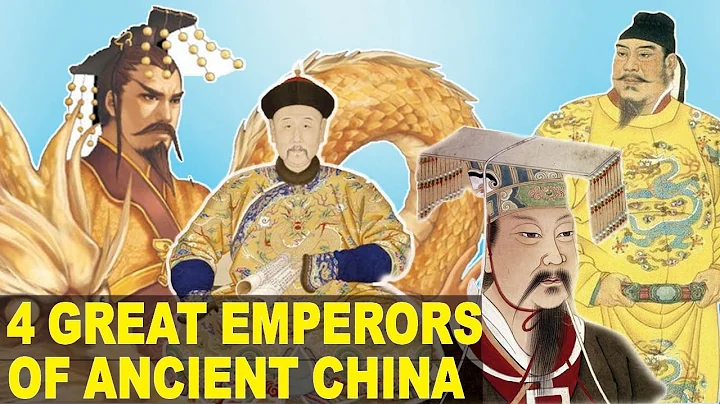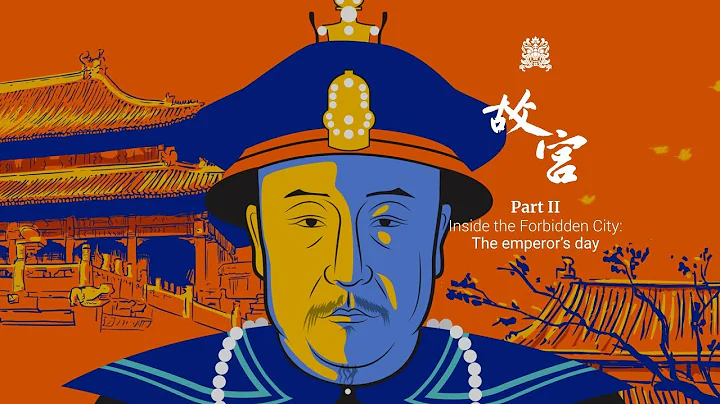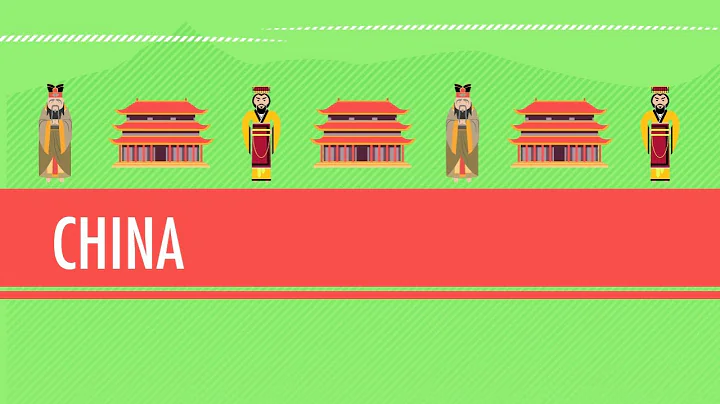In the 20th year of Kangxi's reign (1681), Jieshu captured Geng Jingzhong and returned to Beijing. Kangxi personally led the civil and military officials to Marco Polo Bridge to welcome him and held a banquet to reward him. The following year, Kangxi deprived Jieshu of his military exploits, fined him a year's salary, and no longer used him again.

Jieshu, the grandson of Prince Li Daishan , one of the "Six Princes" of Qing Dynasty , was canonized as Prince Kang.
During the 268 years of the Qing Dynasty, there were many princes, but only 6 of them could be included in the "Six Princes".
Prince Li Daishan, Prince RuiDorgon, Prince Kang Jieshu, Prince Yi Yinxiang, Prince An Yuele, Prince GongYixin, are all the pillars of the country.
The fourth generation of Nurhachi , also known as the "fourth generation of the Eight Banners", has the strongest ability in Jie Shu, much better than Fuquan and Chang Ning.
In 1673, war reports came from Yunnan. Ping XiwangWu Sangui, under the banner of "restoring the Ming Dynasty", executed Zhu Guozhi and launched an army to rebel.
Less than half a year after Wu Sangui launched his army, Yunnan, Guizhou, Sichuan, Guangxi, Guangdong, Jiangxi, and Fujian fell into the hands of the " San Francisco ". Hunan, Shaanxi, Zhejiang, and Gansu also mostly fell.
At the same time, Chahar Mongol Prince Burni raised troops to respond to Wu Sangui and prepared to attack the capital. Kangxi was panicked.
" San Francisco Rebellion " is a test for Eight Banners . Less than thirty years after entering the customs, can it fight?

General Ma Bao of the "Zhou Army" (Wu Sangui's soldiers and horses) swept through Hunan. The Eight Banners cavalry stationed in Jingzhou and Xiangyang did not dare to reinforce and watched their teammates defeat.
In the Battle of Yongxing, Ma Bao led the "Zhou Army" to confront the main force of the Eight Banners sent by Kangxi to Hunan. The Eight Banners were completely defeated, 42 generals were killed on the battlefield, and the Eight Banners huddled in the inner city.
The decline of the Eight Banners made Kangxi very sad, so he had to rely on the Han Army's Green Camp to fight against Wu Sangui. However, Kangxi still hoped to revive the Eight Banners and cultivate some handsome talents.
In 1674, Kangxi appointed Jieshu as the general in the southern expedition, and led the Eight Banners and Green Camp to Zhejiang to fight against Geng Jingzhong.
Compared with Wu Sangui, Geng Jingzhong is much weaker, and he is not compatible with his ally Zheng Jing and cannot be united.
Even so, Geng Jingzhong also captured Wenzhou , Chuzhou , Quzhou , and coveted Jinhua .
Jie Shu went to the south and stationed in Jinhua to observe the situation. Geng Jingzhong's offensive was rapid and fierce, but Jieshu did not send troops to reinforce various places, which made Kangxi dissatisfied.
Xu Shangchao, Geng Jingzhong's forward general, led 50,000 troops straight to Jinhua, trying to eliminate the main force of the Qing army in one fell swoop.

Jie Shu lured the enemy deep, ambushed him with firearms, and defeated Xu Shangchao in the woods outside the city, killing more than 20,000 enemies.
Xu Shangchao was unwilling to fail and led his army to challenge again, attacking Jinhua with artillery . Jieshu adopted night attack tactics, but Xu Shangchao failed to take precautions and fled all the way.
After hearing that Xu Shangchao was defeated, Geng Jingzhong personally led the main reinforcements and met Jieshu, who was pursuing him all the way, in Quzhou, and the two sides fought a decisive battle.
Geng Jingzhong had Western artillery, which was extremely powerful and attacked the Qing army with intensive firepower. With the rain of artillery shells, Jieshu's camp was destroyed. The Eight Banners soldiers used door panels as cover, but Jieshu had no cover.
Jieshu was calm and composed, the morale of the Qing army was high, and Zheng Jing occupied the coastal city again. Geng Jingzhong had no choice but to withdraw his troops and go back to find "allies" for theory.
Geng Jingzhong and Zheng Jing could not unite and tried to undermine each other. As a result, they were defeated by Jieshu one by one.
Geng Jingzhong was desperate and surrendered to the Qing Dynasty again, but was executed by Kangxi Lingchi.
Zheng Jing was unable to reinforce his allies and could not gain a foothold on the coast. He was defeated by Jieshu and retreated to the treasure island.
It took 6 years to put down Geng Jingzhong, Zheng Jing, and Jieshu. When the class teacher returned to the court, Jie wrote to Kangxi and asked Yao Qisheng to governor Fujian and prepare to recover the treasure island.

1681 In December, Jieshu's arrangements were ready and he led the army back to the court. Kangxi personally led hundreds of officials to greet him at Lugou Bridge, and held a banquet to reward outstanding scholars and reward them based on their merits.
1682, Kangxi held him responsible, saying that Jieshu could not quickly send troops to quell the rebellion, and did not rescue Haicheng in time. He was deprived of his military merit and fined one year's salary.
Historical records: "In pursuit of the crime of Jinhua Dun's army and late aid to Haicheng, he was deprived of military merit and fined one year's salary."
In the battle to put down Geng Jingzhong, Jieshu's military exploits were outstanding. Even if he made a small mistake, he would not be deprived of military merit. and will not be reused.
Jieshu's "deprivation of military honors" was the result of Kangxi's strengthening of imperial power and weakening the power of the Manchu and Mongolian nobles. Jieshu, Yue Le, and Kangxi's eldest brother Fuquan were all like this.
Jieshu and Yue Le advocated following the example of the Central Plains, abandoning the traditions outside the customs, supporting Shunzhi to strengthen the imperial power and weaken the Manchu and Mongolian nobles.
After Kangxi succeeded to the throne, Sony , Obai , Suk Saha , and other auxiliary ministers were relatively "conservative", while Jieshu and Yue Le were very open-minded.
Jieshu and Yue Le supported Shunzhi and Kangxi. However, Jieshu and Yue Le were also nobles, holding heavy troops, and were potential challenges to the imperial power.

Relying on the Daishan family, Jieshu's energy was too great. Even if he supported the emperor, Kangxi would beat Jieshu.
After losing his military merit and being fined a salary, Jie Shu lived at home leisurely, settled his 16 wives, concubines and their children, studied behind closed doors, did not care about government affairs, lived a low-key life, and died a good death.
bibliography: " Qing History Manuscript "


![[Eng Sub] Kangxi Dynasty EP.01 Prince Xuanye wins first place in exam but unluckily catches smallpox - DayDayNews](https://i.ytimg.com/vi/HPtwmzuhVA4/hq720.jpg?sqp=-oaymwEcCNAFEJQDSFXyq4qpAw4IARUAAIhCGAFwAcABBg==&rs=AOn4CLCR_-ZC8HmzMKyx8zk0YaDVI-OHLQ)


















